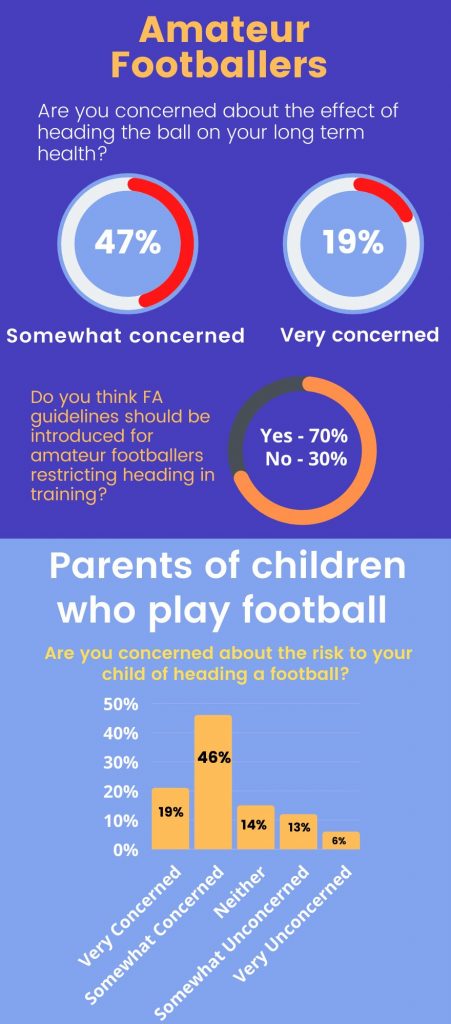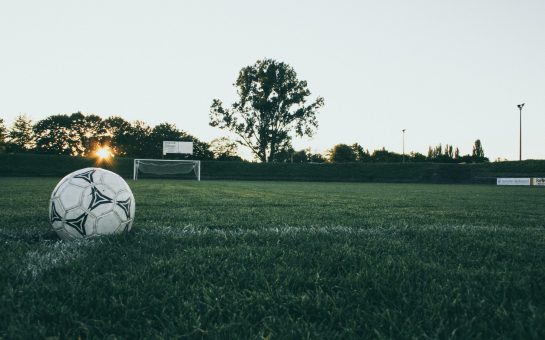A new study has revealed concerns among amateur footballers and the parents of young footballers towards the long-term impact of heading in the sport.
The Drake Foundation, a not-for-profit organisation launched in 2014 by James Drake, surveyed 500 amateur footballers, 500 parents of footballers between 11 and 17 and another 1,000 amateur rugby players and parents.
The football study specifically investigated attitudes towards heading, showing an alarming two thirds of amateur footballers fear the long-term impact of heading on their health, while 48% want it restricted in matches.
Drake said: “There is no denying now that there needs to be a shift in both football and rugby’s approach to brain health, from grass roots through to the elite level.
“It’s clear from these findings that the concern around brain health from professional rugby and football players is echoed at all levels of the sports.
“We are saddened but not surprised to see that more than two thirds of parents are concerned about the risk to their child from heading the ball.”
The survey also revealed 61% of amateur footballers take part in heading drills during training but 70% want guidelines to restrict this, mirroring concerns raised in the professional game.
These figures come after the Football Association’s head of medicine Dr Charlotte Cowie announced plans last month to limit heading in professional training sessions, with a particular warning to coaches who run extensive heading drills.
Although England is the first country to introduce these changes, its professional game has been slow to react to the importance of brain health with the Premier League only implementing concussion subs as recently as this year.

Experts such as Dr Willie Stewart, consultant neuropathologist at the Queen Elizabeth University Hospital in Glasgow, have called for more decisive action by football authorities along the lines of the 2020 ban on heading for children of primary school age.
However, this sentiment is not shared by everyone in football.
AFC Wimbledon academy manager Michael Hamilton was sceptical of calls for more restrictions, believing measures to halt heading in youth football could lead to malpractice and greater risk of damage later on.
Hamilton said: “Heading will always be part of senior football, so if you don’t have it in youth football and it’s suddenly introduced, there’s the potential for damage because bad timing and technique make the situation worse.
“It’s part of the game and if things are done with the right frequency and techniques I don’t see it as an issue.
“If little Johnny down the park’s amateur coach is making him do a thousand headers, then that’s obviously a concern.
“But the reason we love the game is because of the variables, Burnley can go and beat Manchester City in their own style and strategies vary, it’s important we don’t try and change the game that we love.”
Having funded more than £2million of scientific research into sports players’ health, the Drake Foundation will continue its research into underlying neurodegenerative diseases like dementia in order to make sports safer.




